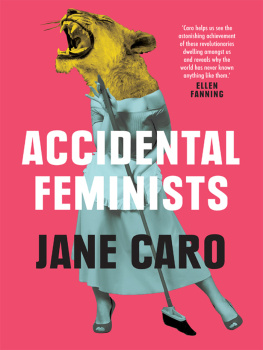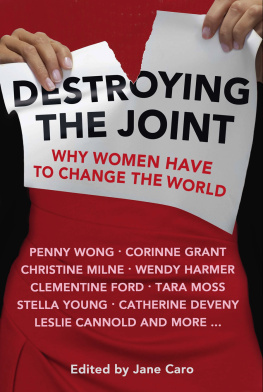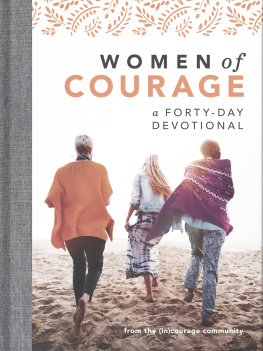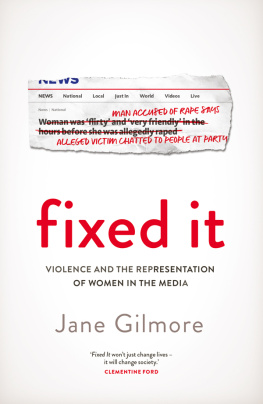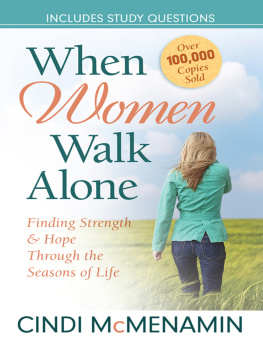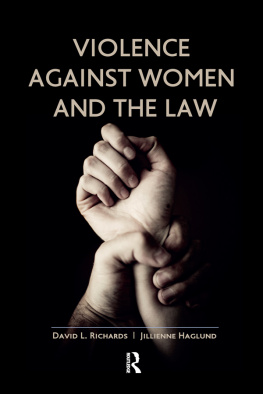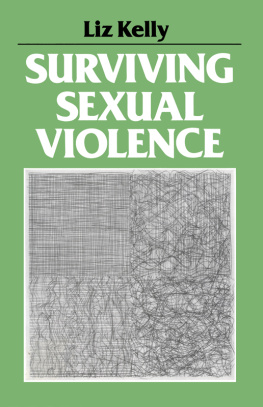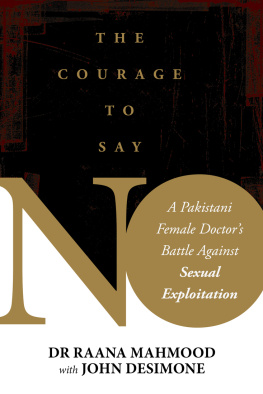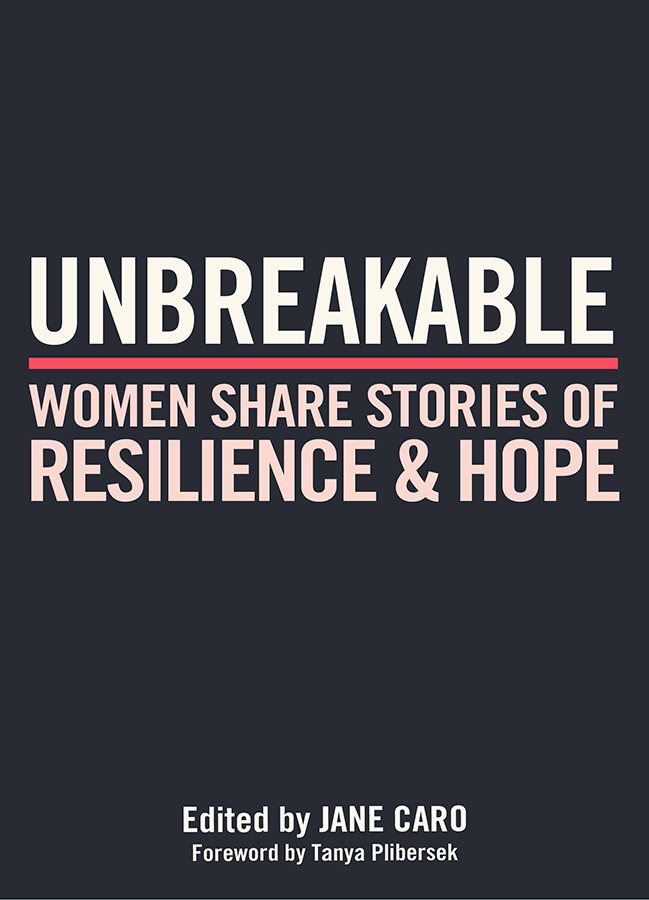Jane Caro is a writer, speaker, social commentator and broadcaster. She is a feminist, an atheist and an advocate for public education. She has written, co-authored and edited nine books, including a trilogy of young-adult novels about Elizabeth I. In a previous life, she was an award-winning advertising copywriter. She appears regularly on Australian television and radio, commenting on politics, feminism and education. She created and presented a six-part radio documentary on long-lasting relationships for Radio Nationals Life Matters and three documentary TV series for ABCs Compass : For Better, For Worse, Mums Boy, Dads Girl and The Staffroom. Her writing appears frequently in The Sydney Morning Herald , The Age , The Saturday Paper , The Big Smoke , Daily Life , Leadership Matters and Kill Your Darlings .
Contents
Publishers Note
The women in this book have written honestly about traumatic events. As a result, you may find some of these pieces triggering or deeply distressing. If this is the case, please seek support. The following services may be of assistance:
- Lifeline: 13 11 14
- beyondblue: 1300 224 636
- Sexual Assault and Domestic Violence National Help Line: 1800 RESPECT (1800 737 732)
- Sands Australia (Miscarriage, Stillbirth and Newborn Death Support): (03) 9895 8700
Foreword
Tanya Plibersek
What more do women want? Weve had a woman prime minister, a woman governor-general, women premiers and captains of industry. Women can serve in every position in our military now. Im the second-most senior person in the Australian Labor Party, and almost 50 per cent of Labors MPs are women. What more could we want?
But there are some places I wont walk on my own. I keep the doors locked if Im home alone. I check my back seat before I get into the car. And, though I feel terrible about it, I try to teach my daughter these same habits. Every one of us adjusts our lives, constrains our own freedom, because being a woman is the biggest risk factor for being a victim of sexual or domestic violence.
I dont think there would be a woman in the country who could read Unbreakable and not find some recollection that strikes close to home. The power of the stories in this book these brave, honest stories is that they are deeply personal but also deeply familiar.
Unbreakable is a testament to our resilience. It shows that we dont need to be defined or destroyed by those challenges we shouldnt have to face.
We all have stories like those in the book. Ive had death threats, rape threats. Ive been assaulted walking home at night. I receive a fair bit of cyberhate. And Im certainly not the first woman to find my idea, or my joke, is considered brilliant when its repeated by a bloke!
Unbreakable celebrates womens ability to rise above these challenges, whether big or small, and move forward with their lives. Not because its okay, but because on a personal level, we cant let ourselves be broken.
While being unbreakable is worth celebrating, women shouldnt have to spend their whole lives practising resilience. By standing together and speaking out about our experiences we can go from rising above to rising up.
Together we are Unbreakable .
This is not so much about good and evil as it is about injustice.
Introduction: The Power to Shame
Jane Caro
I used to belong to a book club. I dont remember exactly when, but it must be close to two decades ago because my kids were still quite young. It was a very high-powered book club, to such an extent that I used to pinch myself to believe I was a part of it. In those days I was nobody in particular a freelance copywriter who wasnt doing much of your actual copywriting. What mostly filled my days at that time was mothering and whinging about it.
The other members of the group were journalists, writers, academics, senior public servants and heavy-hitting executives. Many had names (and faces) you would recognise.
One month we selected a relatively recently published book by Helen Garner to read and then discuss at our next meeting. She was a writer we all admired but her latest book, The First Stone , had caused much controversy. We went our separate ways and read it, and four weeks later we gathered in someones lounge room, replete with obligatory bottles of plonk and plates of food. So far, so predictable. It was only when we began discussing the book that the whole tenor of the evening changed.
If my memory serves me correctly, almost every one of these women all of them gifted, privileged and outwardly successful told a tale of unwanted sexual attention. Some of the stories, such as my own, were of relatively minor events but some were harrowing tales of sexual assault and abuse. I was astonished. I had not realised that such experiences were so common, even in the lives of women I very much admired and may even have been slightly intimidated by. I had not told anyone of my own experience before because I felt the most horrible hot and overwhelming shame whenever I thought about it. Not just shame, either, but a kind of self-disgust and revulsion, as if I had been polluted by the experience. I cannot remember if I had the courage to relate my own experience that night: I hope I did, but I genuinely cannot recall. I may have made some vague references to it because I simply found it so hard to put into words.
And yet, as I have said, mine is a relatively minor experience in the scale of such things.
When I was in my early twenties, I found the pill difficult to tolerate. It made my already generous breasts even larger, very heavy and often sore. Someone suggested that I have an IUD fitted instead. I went to a GP with a practice near my place of work at the time, a GP who had been recommended by a friend. I had seen this doctor a few times and he seemed very nice. I made an appointment during my lunch hour and dutifully trotted off to get the IUD. I was nervous as I had been warned this could cause discomfort. (Having had two kids, I now know that when someone warns a woman about discomfort they really mean excruciating pain Im looking at you, pre-natal class leader.)
Once inside his surgery, I lay on the examination table, knickers off, with one of those absurd modesty sheets across my hips. I think I had to open my legs and bend my knees as you do for a pap smear. As I had been warned, the IUD entering my womb was painful in fact, it was agonising in a particularly dark and visceral way. It was so intense I moaned aloud.
Here, said my doctor, with a concerned look on his face, I have heard that rubbing the clitoris can relieve the pain. Which he then proceeded to do. (I still blush with shame as I write this.)
I reacted as I have heard so many women describe: I froze. Myriad thoughts flew through my brain. Hes the doctor, so perhaps its legitimate. Should I stop him? I HATE this? I am so humiliated! But hes the doctor Surely this cant be happening? Is he molesting me? But hes the doctor!
Eventually it may have been minutes, it may have been seconds, I dont know, time also seemed to freeze I managed to brush his hand away and sit up. I got down off the table and hurriedly put my knickers back on and myself to rights. I cant remember if he said anything. I was still trying to behave as if everything was normal. I may even have said goodbye and politely thanked him as I left the surgery. I paid the bill (YEP! I PAID THE BILL!) and found myself back outside, my head still whirling from what had happened.


